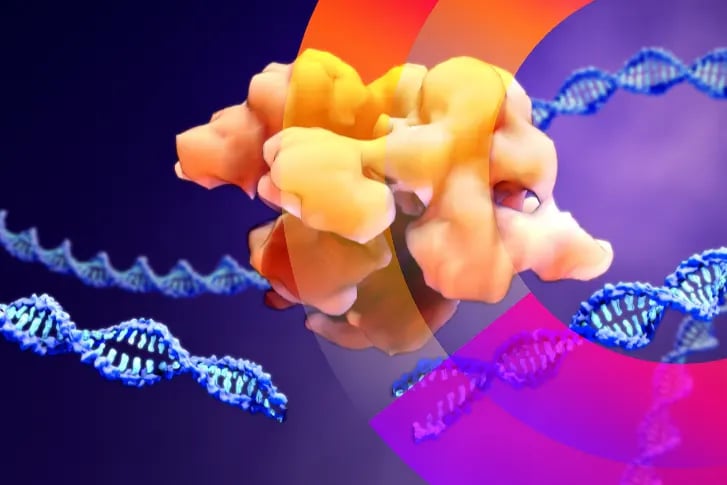June 5, 2023

June 5, 2023

CRISPR, or Clustered Regularly Interspaced Short Palindromic Repeats, is a gene-editing technology that holds enormous promise for treating genetic diseases. However, developing CRISPR-based drugs is a complex and challenging undertaking that requires careful project management. In this blog post, we'll explore some of the key challenges of CRISPR drug development project management and discuss strategies for overcoming them.
One of the key challenges of CRISPR drug development project management is assembling and coordinating cross-disciplinary teams or cross-functional teams. Developing CRISPR-based drugs requires expertise in a variety of fields, including molecular biology, genetics, bioinformatics, chemistry, and pharmacology as well the traditional drug development functional expertise. It can be difficult to find individuals with the right mix of skills and experience, and even more difficult to ensure that everyone is working together effectively from nonclinical, clinical, regulatory, commercial, program management supply chain or tech ops, etc.
To overcome these challenges, project managers and program managers must be skilled at team building and communication. They must be able to identify the key players in each discipline and bring them together to form a cohesive team. They must also be able to communicate effectively across disciplines, ensuring that everyone is on the same page and working toward the same goals.
Another major challenge of CRISPR drug development project management is managing risk. Developing CRISPR-based drugs is a complex and risky undertaking that involves a great deal of uncertainty. There is always the risk of unexpected results, regulatory hurdles, or delays in the development process.
To manage these risks, project managers must be skilled at risk management. They must be able to identify potential risks, assess their likelihood and potential impact, and develop strategies for mitigating them. They must also be able to communicate these risks to stakeholders, ensuring that everyone is aware of the potential challenges and the steps being taken to address them.
One of the major challenges of assessing risk in CRISPR drug development is that this technology is on the cutting edge of science, and there is little to no regulatory precedent. Therefore, close collaboration with health authorities and experts in different fields of medicine is essential for identifying and assessing risks. So, assessing the risk of something that is unknown is very challenging. Working closely with health authorities will be critical as well as collaborating cross-functional and with CRISPR experts in different fields of medicine will be particularly important to identifying and assessing risks.
Developing CRISPR-based drugs also requires compliance with a variety of regulatory requirements. CRISPR is a gene-editing technology that is subject to strict regulations, including the requirement for extensive preclinical and clinical testing to ensure safety and efficacy. These regulations can be complex and time-consuming, and failure to comply with them can result in significant delays or even the termination of the project.
To ensure regulatory compliance, project managers must be skilled at navigating regulatory frameworks and understanding the requirements for each phase of drug development. They must also be able to communicate effectively with regulatory agencies, ensuring that they are aware of the progress of the project and any potential issues that may arise.
Finally, developing CRISPR-based drugs requires significant funding and resource management. CRISPR drug development projects can be expensive, and funding can be difficult to secure. In addition, managing resources such as personnel and equipment can be complex and requires careful planning and management.
To manage funding and resources effectively, project managers must be skilled at budgeting and resource allocation. They must be able to develop realistic budgets and timelines and manage resources effectively to ensure that the project stays on track. They must also be able to communicate effectively with stakeholders, ensuring that they are aware of the funding needs and the progress of the project.
Developing CRISPR-based drugs is a complex and challenging undertaking that requires careful project management. Project managers must be skilled at assembling and coordinating cross-disciplinary teams, managing risk, navigating regulatory frameworks, and managing funding and resources effectively. Despite these challenges, the potential benefits of CRISPR-based therapies are enormous, and project managers who can overcome these challenges and bring these therapies to the clinic can make a significant contribution to the field of genetics and medicine.
Contact Us
May 29, 2023
Specialty pharma companies are focused on developing drugs for niche markets, such as rare diseases, cancer, and other complex conditions. These drugs often require significant investment in research...

June 22, 2022
Here is the scenario: you are the leader of a group and you have been given the responsibility of driving the completion of a new initiative, an early or late-stage drug or devices program, or a...
March 18, 2020
There is more to a project management office than managing projects. In fact, the project management office (PMO) acts as both a watchtower and a lighthouse to guide strategic initiatives toward...